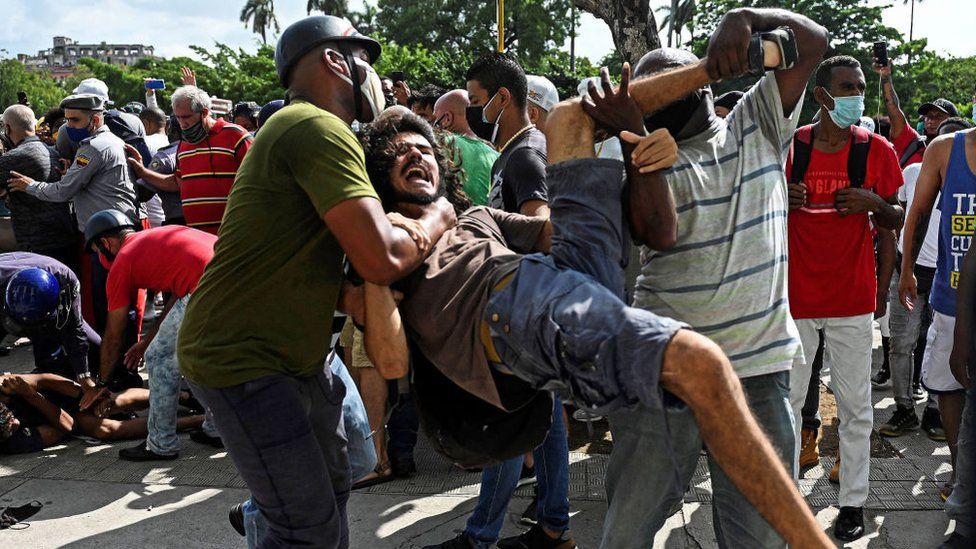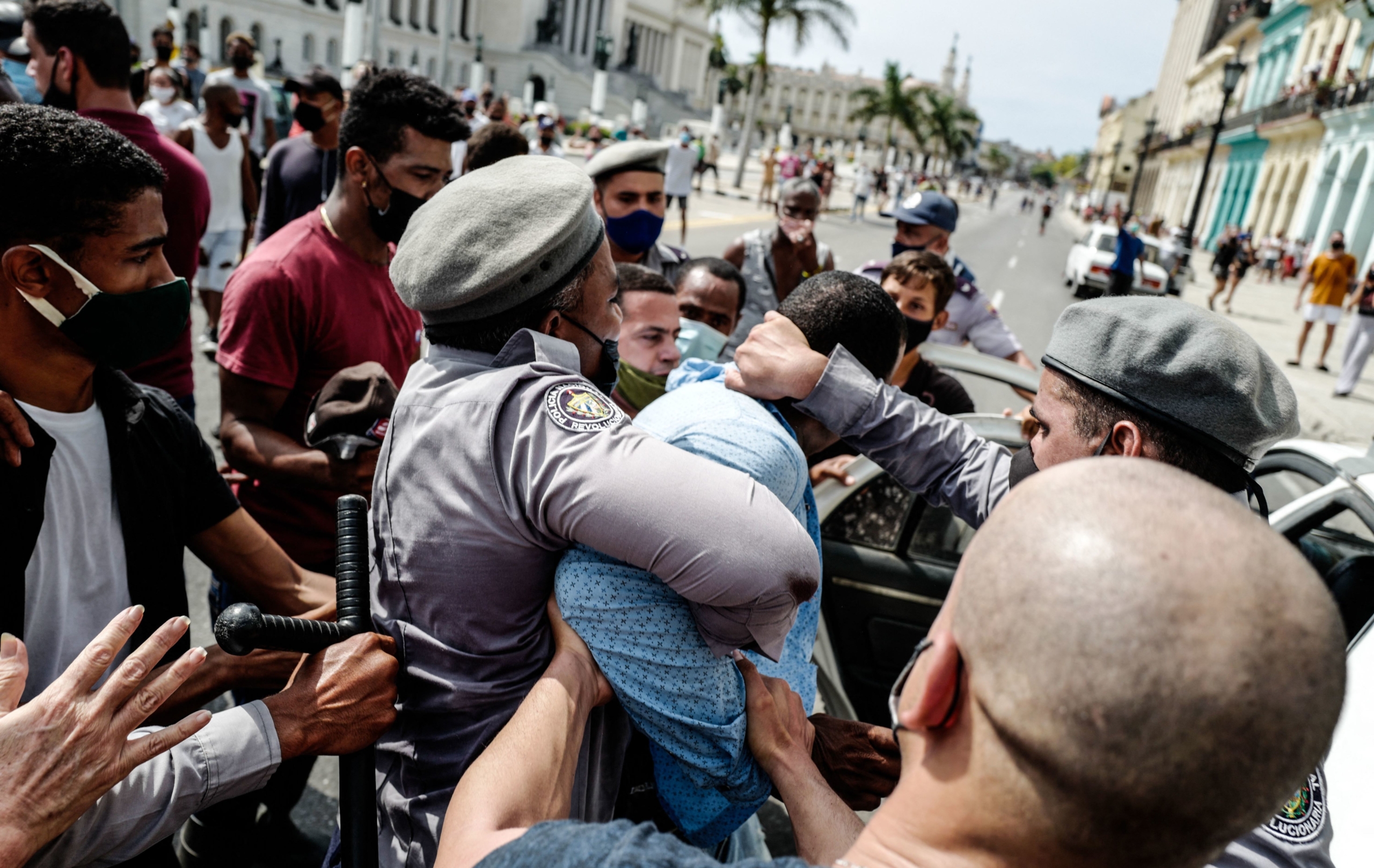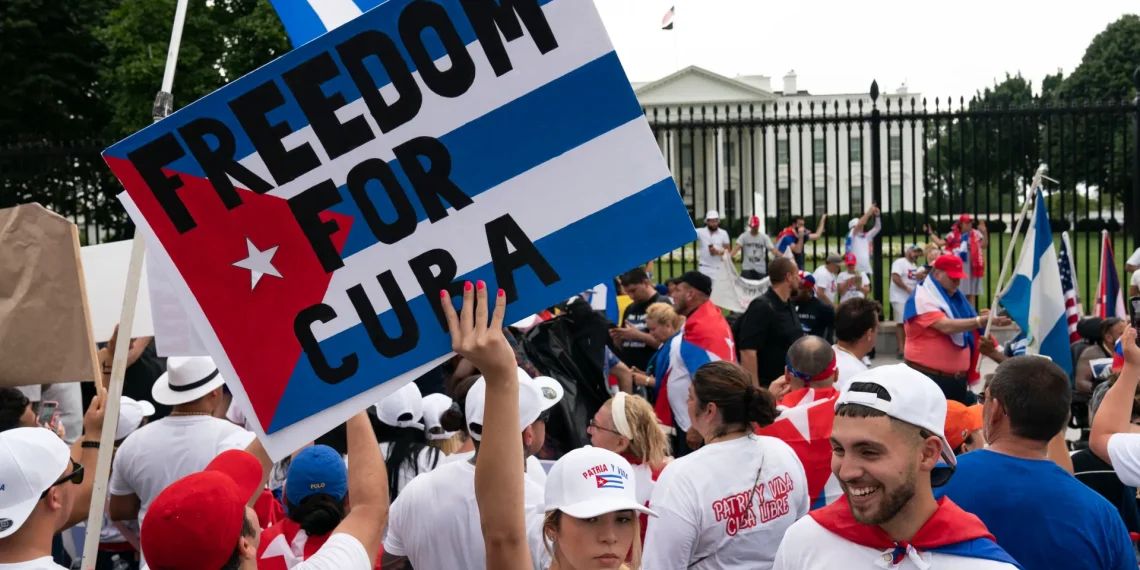The United States strongly criticized a recent Cuban court ruling sentencing a group of protesters to lengthy jail terms, labeling the decision “unconscionable” and “outrageous.”
The protests erupted in Nuevitas in the summer of 2022 amid severe power outages, prompting hundreds to demonstrate.
According to a sentencing document, 13 protesters were found guilty of offenses ranging from sabotage to sedition, with sentences mostly between 10 to 15 years.

The U.S. Assistant Secretary of State for Western Hemisphere Affairs, Brian Nichols, condemned the harsh penalties, emphasizing the peaceful nature of the assembly.
Cuba’s government has faced growing international scrutiny over its handling of protests. Following island-wide demonstrations in July 2021, hundreds were jailed, drawing condemnation from the U.S., EU, and human rights groups.
Despite Cuba‘s claims of trying protesters for various offenses, critics argue against human rights violations.
Cuba’s constitution grants the right to protest, but without specific legislation, demonstrators face legal ambiguity.

Recent protests in Santiago highlighted ongoing grievances over blackouts and food shortages, leading to further detentions.
The Cuban government’s crackdown on dissent exacerbates tensions with the United States, historically at odds with the regime.
The recent sentencing underscores ongoing concerns about human rights in Cuba and the repression of fundamental freedoms.





